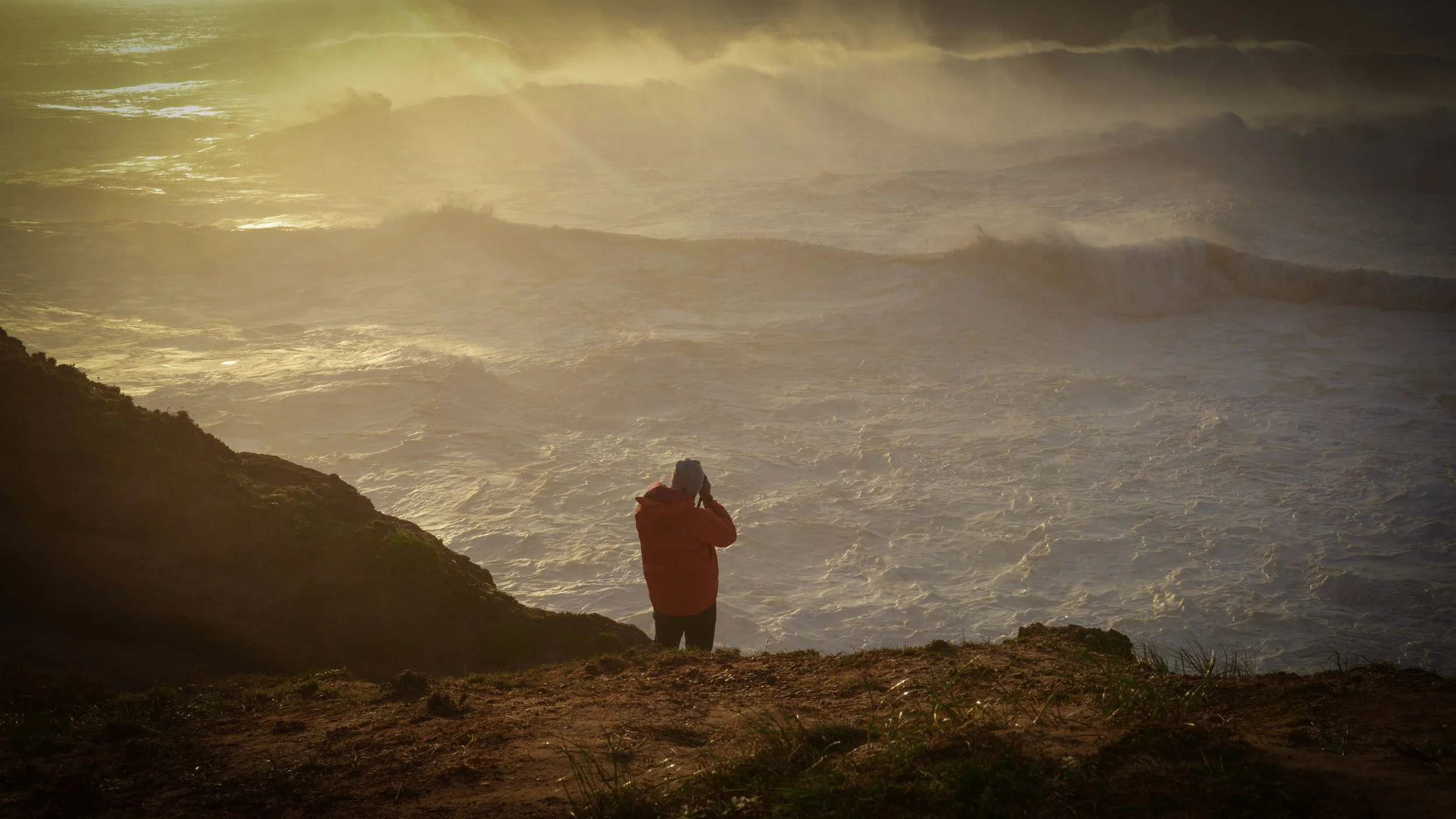The Hidden Energy of Waves
Many times, while standing in Nazaré, I’ve asked myself:
How much energy is actually contained in a single wave?
The truth is: a Nazaré wave holds an energetic potential of almost unimaginable scale.
Right before our eyes, a force dances across the ocean—one that, if we learned to harness it, could change the world.
To make this energy more tangible, I made a series of calculations. The amount of power stored in waves of different heights, based on a typical wave period of 10 seconds – common along many coastlines worldwide.
The table below shows the power per meter of wave crest, scaled up to a 100-meter-wide wave. This allows for a comparison with the output of a typical nuclear power plant (approx. 1000 MW) and the impressive Grande Dixence Dam in Switzerland (approx. 2069 MW).
| Wave Height (Hs) | Power per Meter of Wave Crest (kW/m) | Energy Flux per Meter of Wave Crest (Joules/second per meter) | Power of a 100m Front (MW) | % of a typical Nuclear Plant (1000 MW) from 100m Front | % of Grande Dixence (2069 MW) from 100m Front |
|---|---|---|---|---|---|
| 3 meters | 45 kW/m | 45,000 J/s per meter | 4.5 MW | 0.45% | approx. 0.22% |
| 5 meters | 125 kW/m | 125,000 J/s per meter | 12.5 MW | 1.25% | approx. 0.60% |
| 10 meters | 500 kW/m | 500,000 J/s per meter | 50 MW | 5.0% | approx. 2.42% |
| 25 meters | 3125 kW/m | 3,125,000 J/s per meter | 312.5 MW | 31.25% | approx. 15.10% |
Notes on the Calculation:
Power per meter of wave crest (kW/m):
The average amount of energy transported per second by a one-meter-wide section of the wave.
Formula used:P ≈ 0.5 × Hs² × Te
whereHsis the significant wave height (in meters) andTeis the wave energy period (here: 10 seconds).Energy flow (joules per second per meter):
Converted to the physical base unit (1 kW = 1000 J/s).Power of a 100-meter front (MW):
Projection of the total power that could theoretically be generated by fully capturing the energy of a 100-meter-wide wave front.Percentage comparison:
Indicates the proportion of power that such a wave front could deliver relative to the output of a nuclear power plant or the Grande Dixence dam.
The numbers speak for themselves:
Even a "modest" 100-meter wave front with 10-meter-high waves can deliver energy in the double-digit megawatt range—comparable to a medium-sized power plant or a large solar farm.
With the colossal 25-meter waves seen off the coast of Nazaré, theoretical output could exceed 300 MW—that’s more than a quarter of the output of a modern nuclear reactor.


